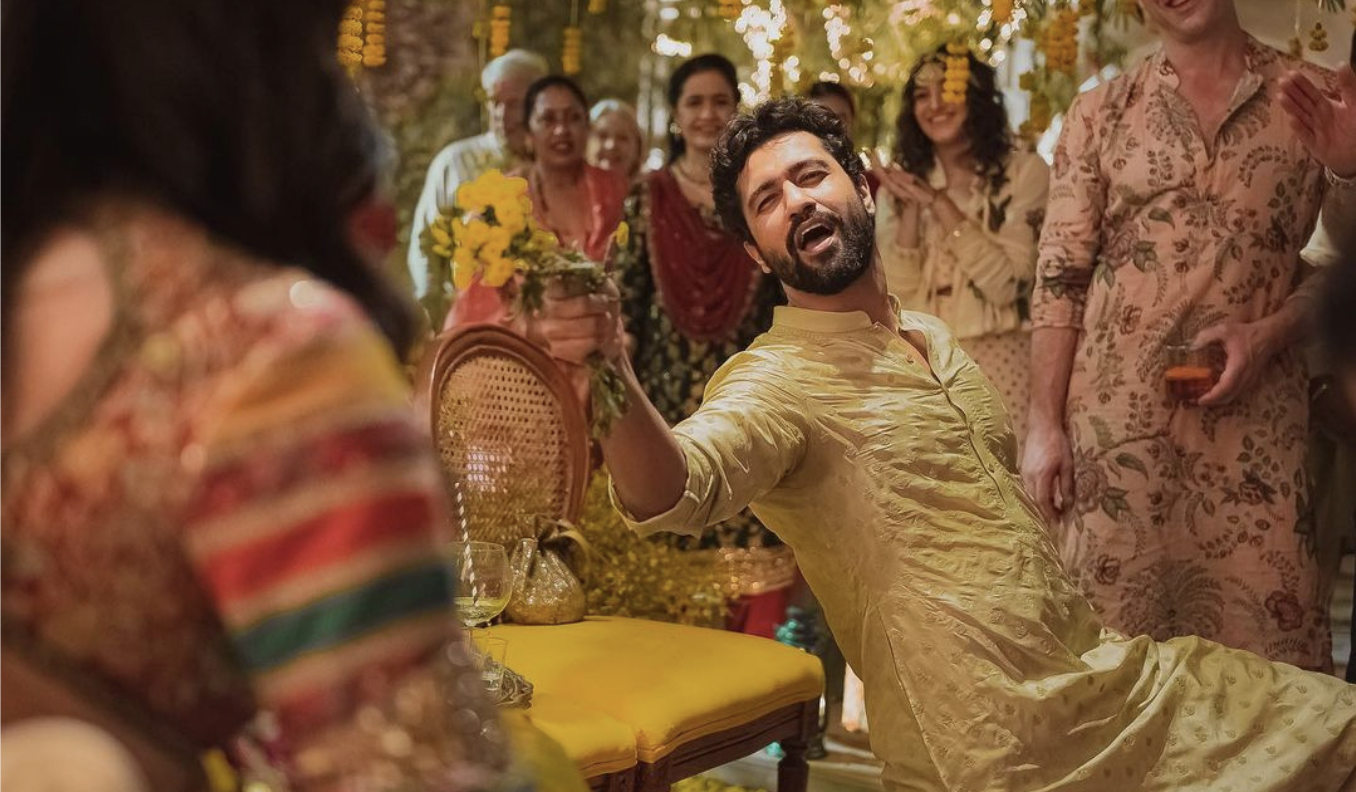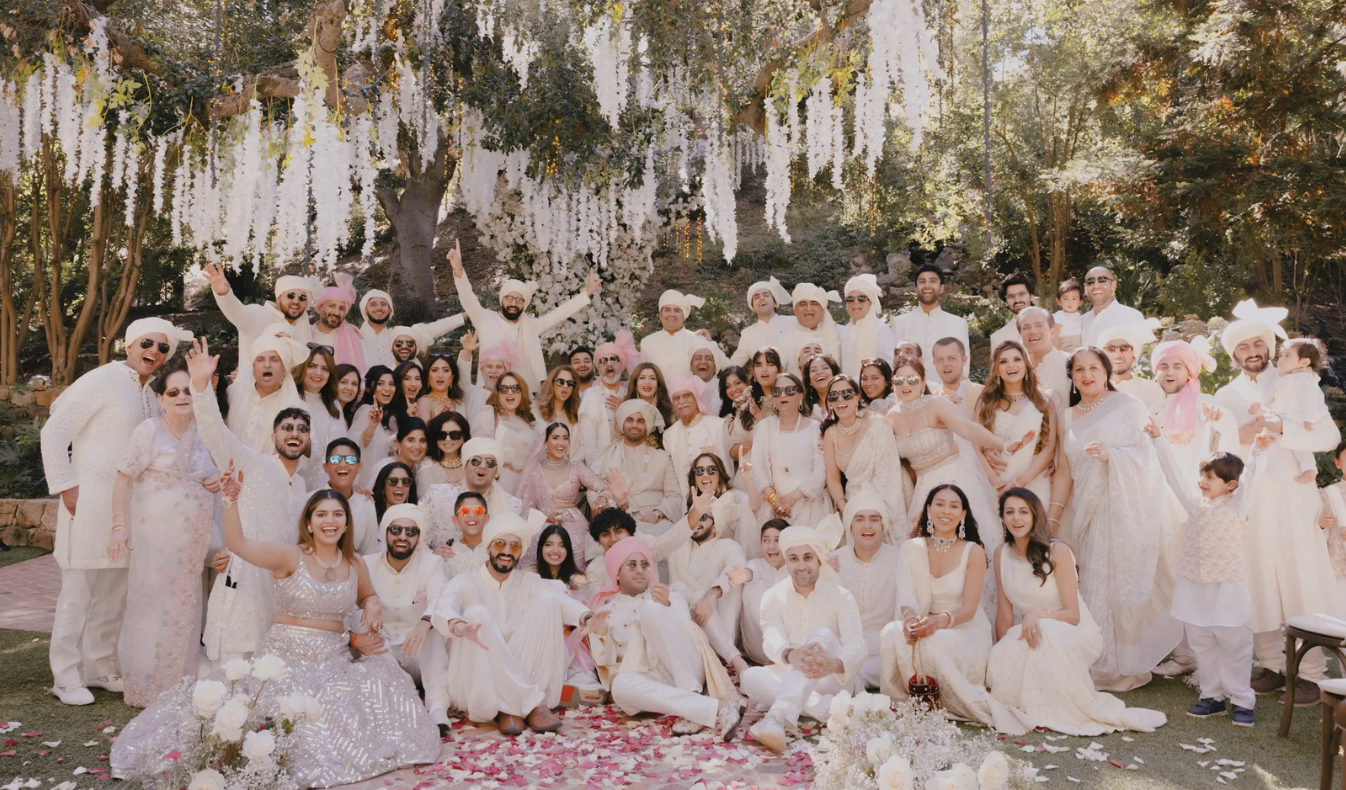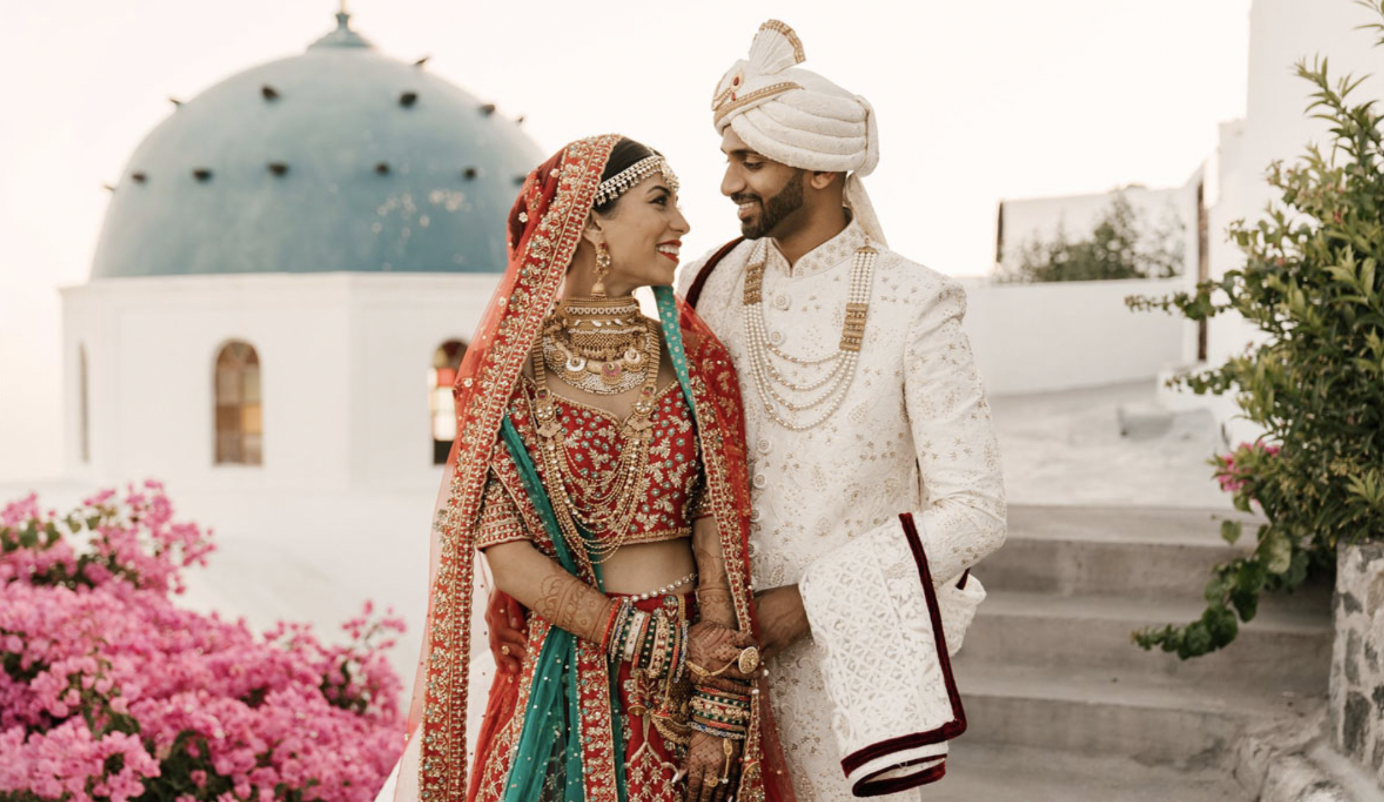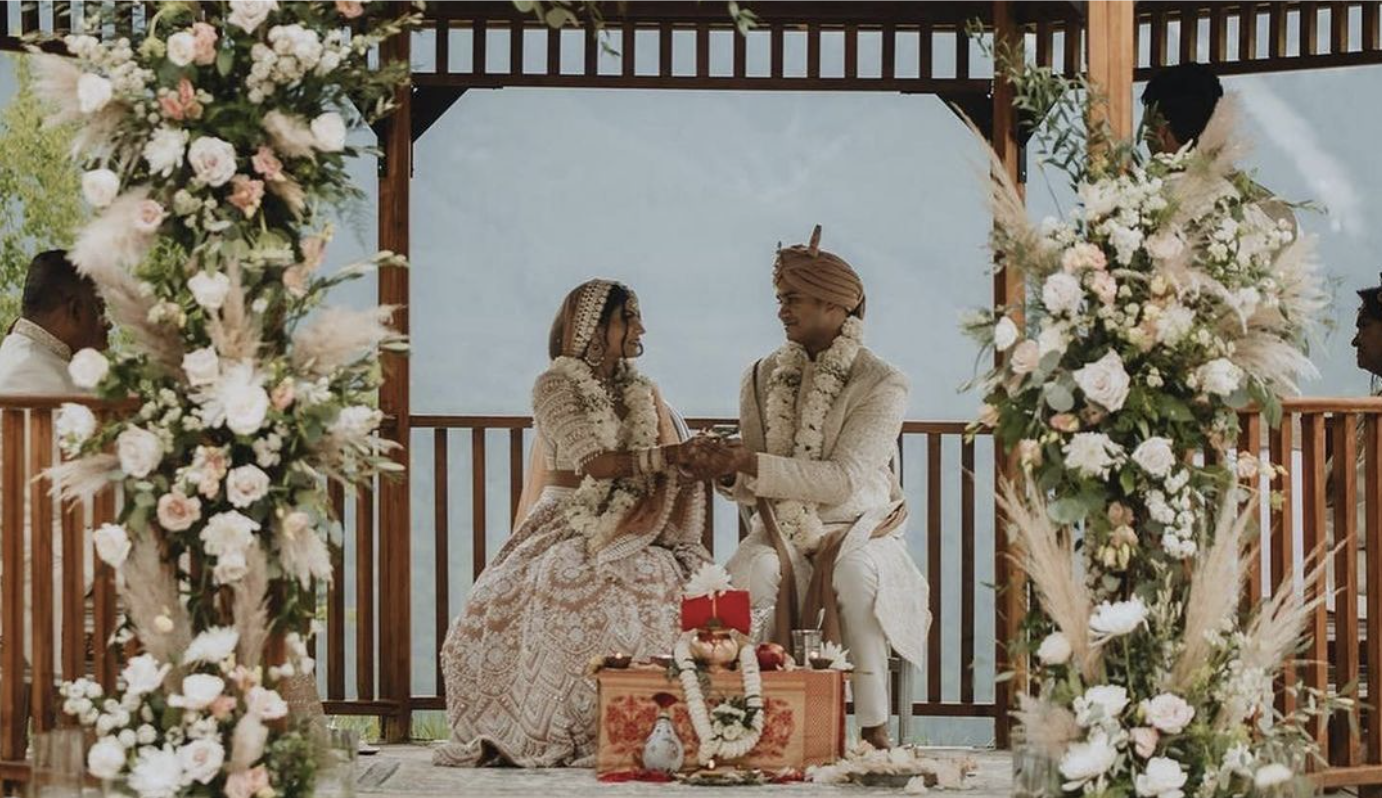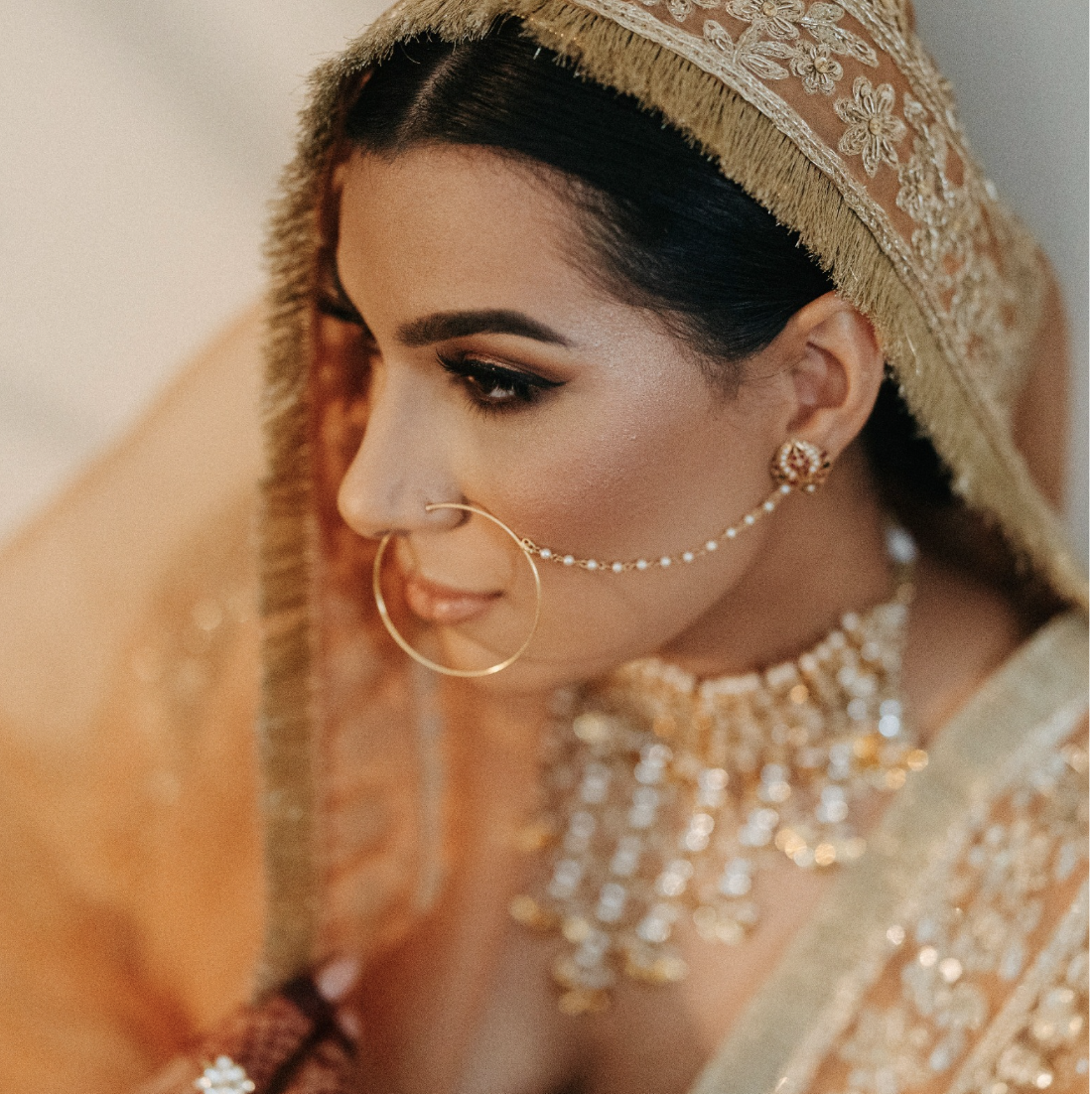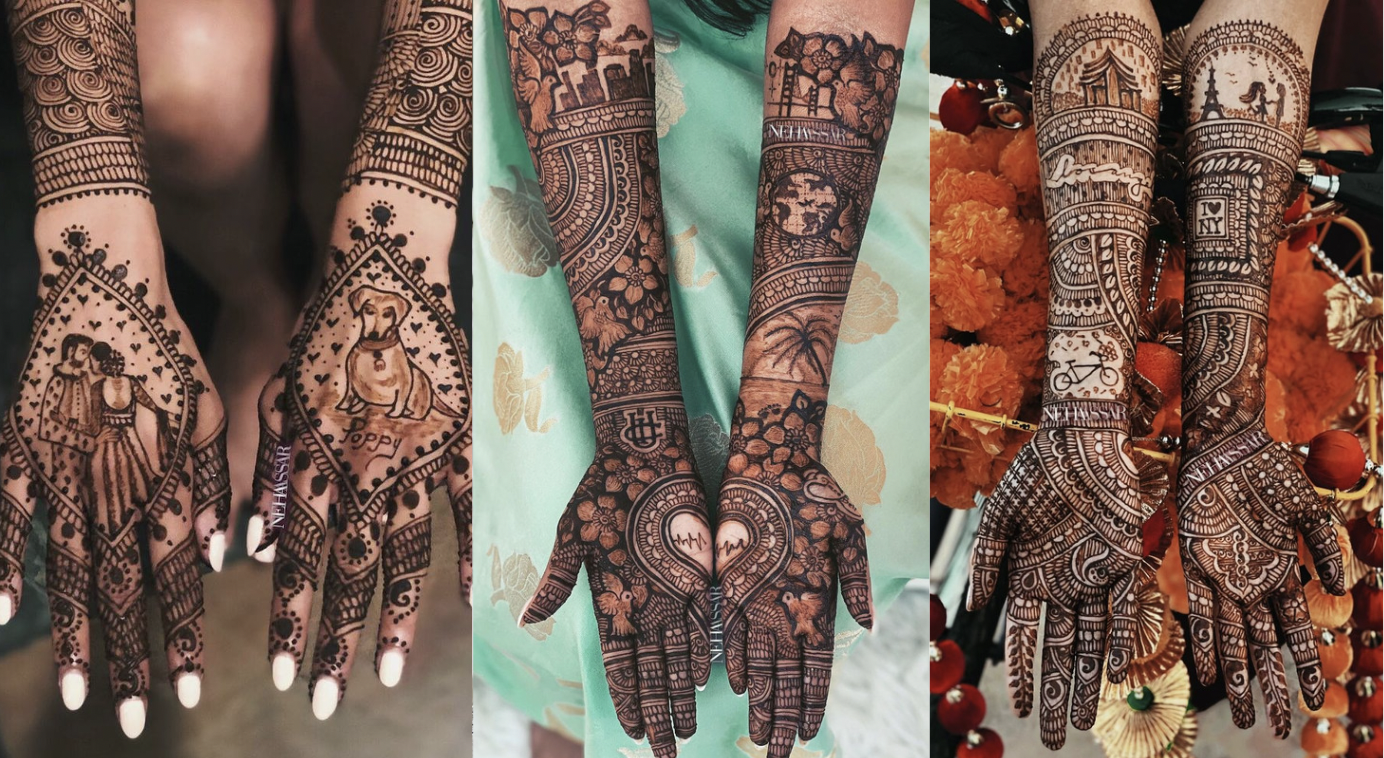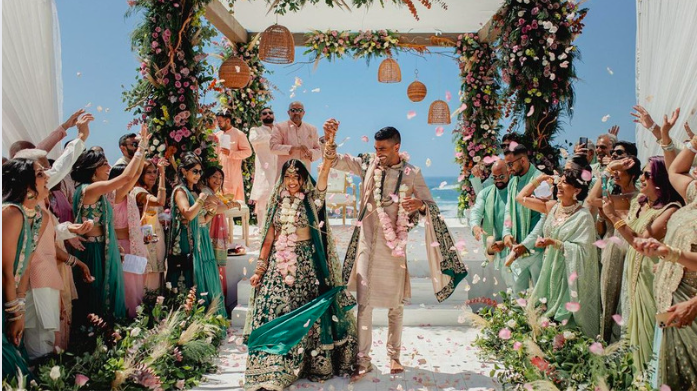How To Plan Your Destination Wedding In The Bahamas
Destination Wedding Radhika SharmaIf you're dreaming of a destination wedding, The Bahamas, located in the heart of the Caribbean, should be at the top of your list. With its pristine beaches, crystal-clear turquoise waters, and a vibrant culture, this tropical paradise has long held a special place in the hearts of those dreaming of an idyllic wedding day. In this enchanting archipelago, where every sunset paints a masterpiece and every wave serenades your love story, the allure of a Bahamian wedding is simply irresistible. This article is your compass to navigate the journey of planning your dream wedding in the Bahamas.
From selecting the perfect venue against the backdrop of breathtaking natural beauty to embracing the Bahamian traditions and incorporating them into your special day, we will be your guide in crafting an unforgettable celebration of love. Join us as we explore the enchanting world of Bahamian weddings, where love meets the horizon, and dreams become a reality.
Why Choose the Bahamas?
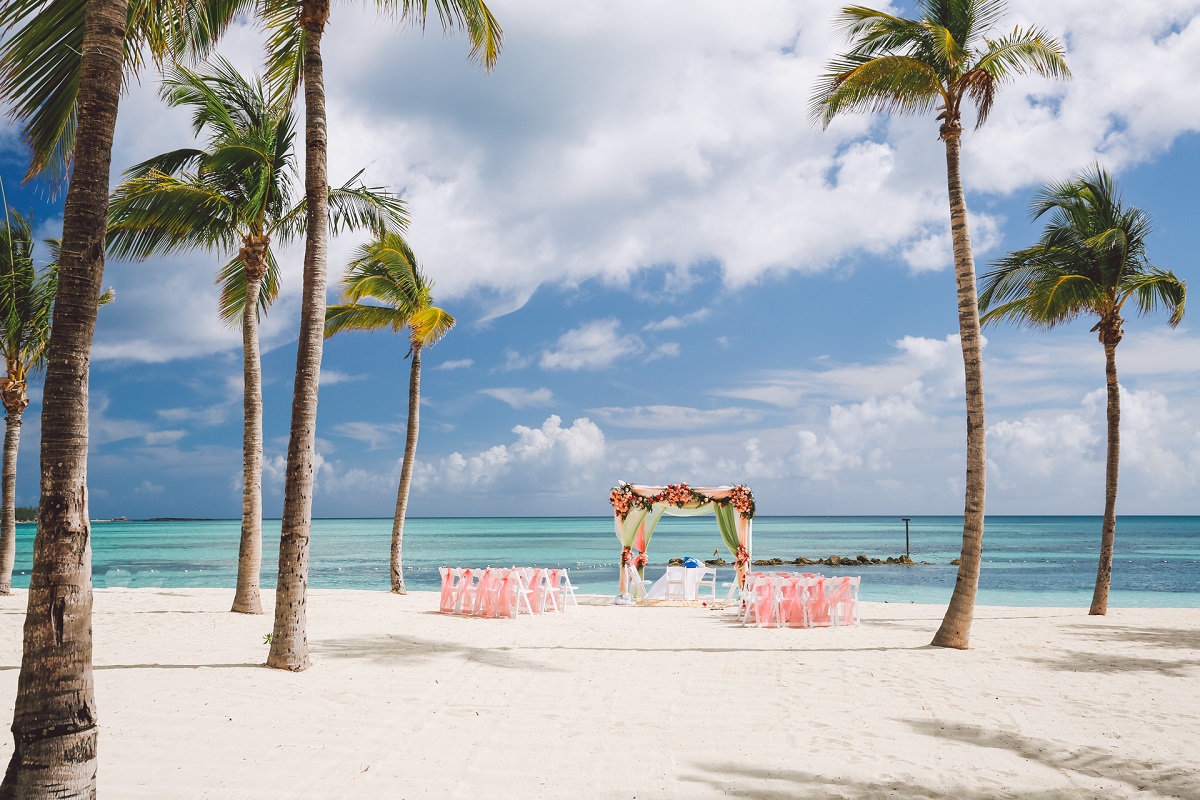
Source: Chic Bahamas Weddings
The Bahamas beckons as an exceptional wedding destination due to its natural beauty, accessibility, versatile venue options, and the opportunity to immerse yourself in the captivating local culture and traditions. Whether you envision a barefoot beach ceremony, a lush garden affair, or an elegant resort celebration, the Bahamas provides an array of stunning venues and experiences to suit your desires. With its easy accessibility, friendly locals, and a multitude of activities to enjoy, choosing the Bahamas as your wedding destination is a decision that promises romance, adventure, and cherished memories to last a lifetime. Here are some of the reasons that will make your destination wedding in the Bahamas, a magical one.
1. Natural Beauty
One of the most compelling reasons to choose the Bahamas as your wedding destination is its unparalleled natural beauty. The archipelago boasts a breathtaking array of landscapes. With its stunning sunsets, azure skies, and the gentle rustle of palm trees, the Bahamas offers an idyllic setting that promises to make your wedding day a visual masterpiece. Whether you envision an intimate beach ceremony or a more opulent affair, the backdrop of Mother Nature's finest work will infuse your wedding with a sense of magic and wonder.
2. Accessibility
The accessibility of the Bahamas is another significant advantage for couples planning a destination wedding. Located just off the coast of Florida, the Bahamas are easily reached from major cities in the United States and Canada. Several international airports, such as Nassau's Lynden Pindling International Airport, offer convenient connections, making it relatively hassle-free for you and your guests to arrive. This accessibility minimizes travel-related stress, ensuring that your loved ones can join you to celebrate this special occasion.
3. Variety of Venues
One size does not fit all when it comes to weddings, and the Bahamas offers a diverse range of venues to suit your preferences. From luxurious beachfront resorts and boutique hotels to historic churches and private villas, you can choose a setting that perfectly matches your vision. Whether you dream of exchanging vows on a secluded cay, beneath the swaying palms, or in a charming colonial chapel, the Bahamas provides a plethora of options to cater to your unique tastes and style.
4. Local Culture and Traditions
Embracing the local culture and traditions of the Bahamas can add a rich layer of authenticity to your wedding experience. From Junkanoo parades to Bahamian music and dance, you can incorporate elements of this vibrant culture into your celebration. Additionally, the warm and welcoming nature of the Bahamian people ensures that you and your guests will feel like cherished members of the community, creating a sense of belonging that's truly special. Engaging with local customs can turn your wedding into an immersive cultural experience that you and your guests will treasure forever.
Best Time to Get Married in the Bahamas
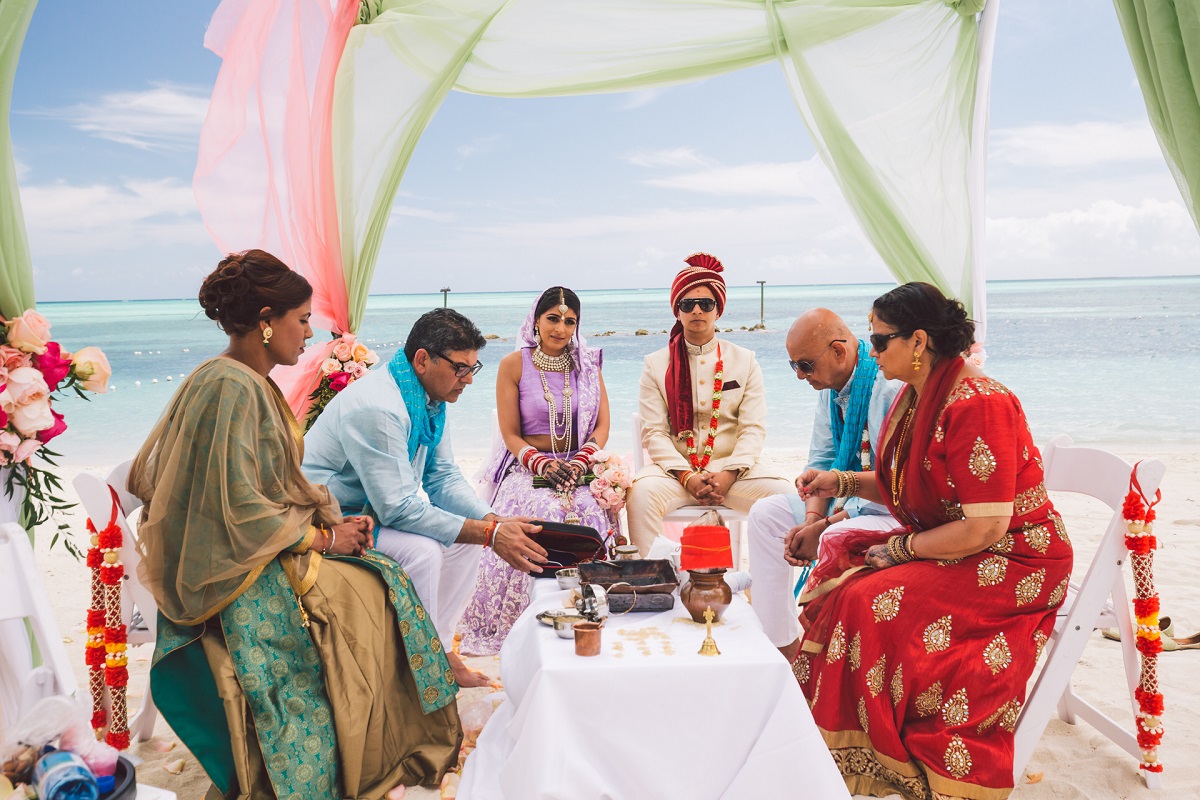
Source: Chic Bahamas Weddings
Choosing the perfect time to get married in the Bahamas is a crucial decision for couples planning their dream destination wedding. The pristine beauty of this tropical paradise, paired with its pleasant climate, is a major draw for those seeking a romantic backdrop for their special day. However, understanding the nuances of the weather, peak versus off-peak seasons, and local events and holidays is essential for a seamless and memorable celebration. Taking into account these key factors will help couples make an informed choice and ensure their wedding in this breathtaking destination is everything they've envisioned.
1. Weather Considerations
The weather in the Bahamas is a significant factor when planning your wedding. The peak wedding season in the Bahamas falls between December and April when the weather is dry, warm, and pleasant. During these months, you can expect plenty of sunshine, minimal rainfall, and comfortable temperatures, making it an ideal time for outdoor ceremonies and beachfront celebrations. Also, it is the highest tourist season which means accommodations and venues may be more expensive, and availability could be limited. If you prefer a quieter and more affordable experience, you might want to consider the shoulder seasons of late spring (May and June) and early fall (September and October). While there may be some occasional rain during these months, you can still enjoy relatively good weather and fewer crowds.
2. Peak vs. Off-Peak Seasons
The peak season, which spans from December to April, is the most popular time for weddings in the Bahamas. This period offers the best weather conditions and is perfect for couples who want to have a classic beach wedding. However, it's essential to book your accommodations and venues well in advance, as these months tend to be in high demand.
Another off-peak season, which includes the late spring and early fall months, can be a great choice if you're looking for a more budget-friendly option and are open to slightly less predictable weather. During these times, you can often find better deals on accommodations and enjoy a quieter atmosphere, making it easier to secure your preferred venues.
3. Local Events and Holidays
It's also important to consider local events and holidays when planning your wedding in the Bahamas. While the Bahamas celebrates many cultural festivals and events throughout the year, you'll want to avoid scheduling your wedding during major holidays, as it may affect availability and increase costs for accommodations and services. Popular events like Junkanoo, the Bahamas Carnival, and other local festivals can also bring in larger crowds, so it's a good idea to plan around these dates if you prefer a quieter wedding celebration.
Legal Requirements and Paperwork for Your Destination Wedding in the Bahamas
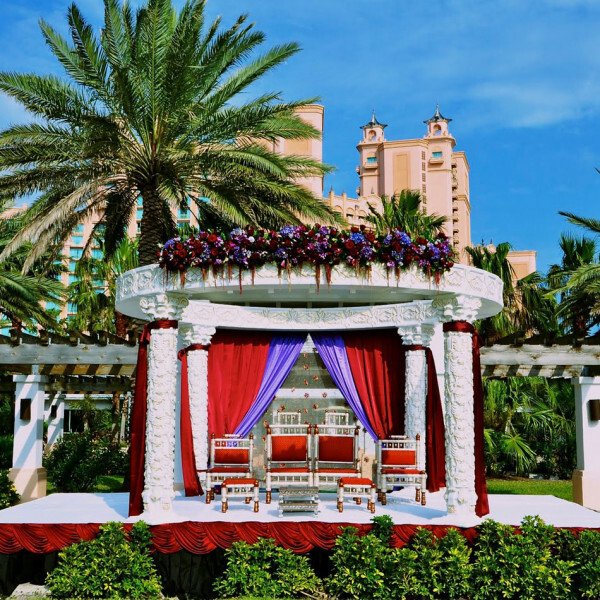
Source: Atlantis Paradise Island
Planning a destination wedding in the Bahamas is a dream come true for many couples, but navigating the legal requirements and paperwork is a crucial step to ensure a smooth and hassle-free celebration. To make your dream wedding a reality in this tropical paradise, it's essential to understand the necessary documents, submission timelines, and local laws and regulations.
Getting married in the Bahamas involves some legal requirements and paperwork to ensure your union is recognized both in the Bahamas and internationally. It's essential to consult with the Registrar General's Office on the specific island or location in the Bahamas where you plan to get married, as requirements and processes may vary slightly. Ensure that you have all the necessary documents and follow the local laws and regulations diligently to make your wedding in the Bahamas legally binding and worry-free. Here's a breakdown of the necessary documents, the timeline for submission, and some key local laws and regulations to consider:
1. Necessary Documents
- Passports: You and your partner will need valid passports as proof of your identity and citizenship.
- Birth Certificates: Original or certified copies of your birth certificates that include the names of both parents.
- Proof of Marital Status: If either of you is divorced or widowed, you will need the relevant divorce decree absolute or death certificate.
- Parental Consent: If either party is under the age of 18, written consent from both parents or legal guardians is required.
- Sworn Affidavit: An affidavit stating that you are both single and free to marry is typically required. This document may need to be notarized.
- Decree Absolute: If either party was previously married and divorced, a copy of the decree absolute is necessary.
- Death Certificate: If either party was previously married and their spouse passed away, a copy of the death certificate is required.
- Proof of Arrival: A photocopy of your Bahamas immigration card, which is provided upon entry into the country.
- Letter of Intent: A letter of intent to marry, also known as a marriage license application, must be completed. You can obtain this from the Registrar General's Office.
2. Timeline for Submission
- Start Early: It is advisable to start the paperwork process at least eight weeks before your planned wedding date to ensure all documents are in order.
- Be Physically Present: You must be physically present in the Bahamas for at least 24 hours before applying for a marriage license.
- Visit the Registrar General's Office: Once you arrive in the Bahamas, visit the Registrar General's Office to submit your documents and apply for the marriage license. The marriage license is typically issued on the same day.
3. Local Laws and Regulations
- Residency Requirement: There is no residency requirement for getting married in the Bahamas, but you must arrive at least 24 hours before applying for the marriage license.
- Age Requirement: Both parties must be at least 18 years old to marry without parental consent.
- Witnesses: You will need two witnesses over the age of 18 to be present at the wedding ceremony and sign the marriage register.
- Ceremony Venue: You can choose to have your wedding ceremony at the Registrar General's Office or a location of your choice with the permission of the Registrar.
- Marriage License Fee: There is a fee for the marriage license, which varies by location in the Bahamas. Check with the local Registrar's Office for the current fee.
- Waiting Period: There is typically no waiting period after obtaining the marriage license, so you can get married on the same day.
- Validity: Your marriage in the Bahamas will be legally recognized internationally.
- Name Change: If you plan to change your name after marriage, you can do so using your marriage certificate as evidence.
Budgeting for Your Destination Wedding in the Bahamas
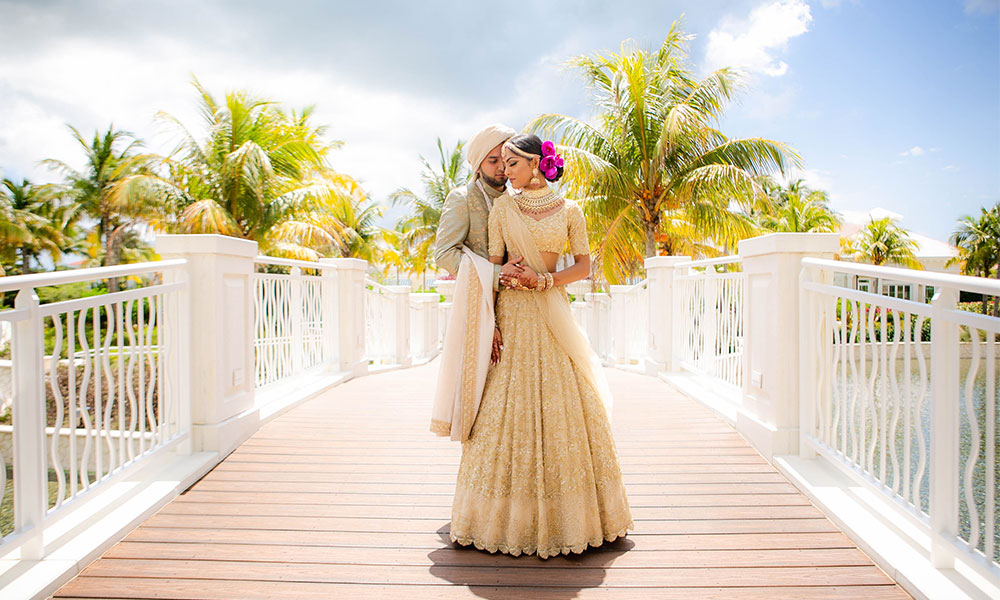
Source: Sonal J. Shah Event Consultants
Planning a destination wedding in the Bahamas is a magical experience, but it's essential to create a well-thought-out budget to ensure your dream celebration aligns with your financial expectations. The Bahamas, with its stunning beaches and enchanting venues, offers a unique backdrop for your special day, but costs can add up quickly. To make the most of your destination wedding without breaking the bank, it's crucial to understand and manage your expenses.
Budgeting for a destination wedding involves considering various factors, such as venue costs, accommodation, food and beverage expenses, and additional items like decor and photography. Once you've calculated the costs for each category, you'll have a comprehensive budget for your wedding. Be sure to prioritize your spending based on what matters most to you and your partner.
Keep track of your expenses, and consider working with a financial advisor or wedding planner who has experience with destination weddings to help you stay on budget and make the most of your budgeted funds. We have mentioned below the detailed info you will need to manage your wedding in a budget-friendly way. With careful planning, you can have the tropical wedding of your dreams while staying within your budgetary limits.
1. Venue Costs
- Ceremony Venue: The cost of your ceremony venue can vary widely depending on your choice. Beachfront locations, resorts, and private villas may have different pricing structures. Be sure to inquire about any permit fees or additional charges for using certain beach areas.
- Reception Venue: If you plan to have a separate reception venue, such as a ballroom at a resort or a private event space, consider the rental fee, which often includes setup, tables, chairs, and basic décor. Prices can vary significantly based on the venue's location and level of luxury.
2. Accommodation
- Accommodation for You and Your Guests: Consider the cost of accommodations for yourself, your wedding party, and any guests attending the wedding. The Bahamas offers a wide range of options, from luxury resorts to more budget-friendly hotels and vacation rentals.
- Destination Wedding Packages: Some resorts and hotels in the Bahamas offer wedding packages that include accommodation for the couple and special rates for wedding guests. These packages can provide cost savings.
3. Food and Beverage
- Catering: The cost of catering will depend on the number of guests, the menu you choose, and the catering service you hire. Buffets and plated dinners are common choices. Ask about menu options and pricing per person.
- Beverages: Consider the cost of alcoholic and non-alcoholic beverages. You can choose to have an open bar, a limited bar, or a cash bar. Beverage costs can add up, so be clear about your preferences.
- Wedding Cake: Don't forget to include the cost of your wedding cake. The price can vary based on the design and size of the cake.
4. Additional Expenses
- Decor and Flowers: Include expenses for décor elements such as flowers, centerpieces, lighting, and any special décor items you desire.
- Photography and Videography: Budget for a professional photographer and videographer to capture your special moments. Be sure to discuss packages, editing, and delivery timelines.
- Entertainment: Consider the cost of live music, a DJ, or any other entertainment you want at your wedding.
- Wedding Planner: If you choose to hire a wedding planner, include their fees in your budget. A local planner can be especially valuable for destination weddings.
- Transportation: Factor in transportation costs for you, your guests, and any necessary transfers to and from the ceremony and reception venues.
- Marriage License and Legal Fees: Don't forget to budget for the marriage license and any associated legal fees, such as notarization or apostille services.
- Favors and Gifts: Consider any gifts for your bridal party, as well as wedding favors for your guests.
5. Contingency Fund
It's wise to set aside a contingency fund of around 10% of your total budget to cover unexpected expenses or last-minute adjustments.
6. Currency Exchange
Keep in mind that the Bahamas uses the Bahamian dollar (BSD), so you may need to consider currency exchange rates when budgeting and making payments.
Choosing the Perfect Venue for Your Destination Wedding in the Bahamas
.jpeg)
Source: Chic Bahamas Weddings
Selecting the ideal venue for your Bahamas wedding is a pivotal decision that can significantly impact the overall experience. Choosing the perfect venue ultimately depends on your vision, budget, and the atmosphere you want to create for your special day. Each venue category presents its unique charm and ambiance, catering to different preferences and styles. It's also essential to visit potential venues in person or virtually and communicate openly with venue staff to ensure they can accommodate your specific wedding vision and requirements.
Here are some considerations to help you choose the perfect venue based on popular options in the Bahamas:
1. Beachfront Resorts
For those envisioning a romantic ceremony with the sound of waves gently crashing in the background, beachfront resorts are the quintessential choice. The Bahamas boasts numerous resorts situated along its exquisite coastline, where you can exchange vows against the backdrop of turquoise waters and powdery sands.
- Pros:
- Scenic Backdrop: Beachfront resorts offer stunning views of the turquoise waters and pristine beaches, creating a naturally beautiful setting for your wedding.
- All-inclusive Packages: Many resorts in the Bahamas offer wedding packages that include accommodations, catering, and other wedding services, simplifying the planning process.
- Guest Accommodation: Resorts often have ample accommodations for your guests, making it convenient for everyone.
- Cons:
- Popular Choice: Beachfront resorts are a popular choice for weddings, so it's essential to book well in advance to secure your preferred date and location.
- Cost: While there are budget-friendly options, some beachfront resorts can be expensive, particularly during peak wedding season.
2. Secluded Islands
If you're seeking an intimate and secluded setting, the Bahamas offers various private islands, providing the perfect escape for couples looking to celebrate their love in privacy. These secluded islands provide an exclusive and serene environment for your wedding, surrounded by natural beauty.
- Pros:
- Intimate Setting: Secluded islands provide a sense of privacy and intimacy, perfect for couples who want a more secluded and romantic wedding.
- Unique Experience: Your wedding becomes a destination adventure, offering your guests a memorable and exclusive experience.
- Natural Beauty: These islands often feature unspoiled landscapes and pristine beaches, ideal for a serene and picturesque ceremony.
- Cons:
- Limited Amenities: Some secluded islands may have limited facilities, which could require extra planning and logistics for accommodations and services.
- Accessibility: Depending on the island's location, accessibility for you and your guests may be more challenging than at more mainstream locations.
3. Historic Sites
For history enthusiasts, the Bahamas features historic sites with captivating stories to tell. Choosing one of these locations for your wedding can infuse your ceremony with a sense of timeless charm and cultural significance.
- Pros:
- Rich History: Historic sites in the Bahamas offer a unique and culturally rich backdrop for your wedding, adding depth and significance to your ceremony.
- Architectural Beauty: These sites often feature beautiful architecture and well-maintained gardens, providing excellent photo opportunities.
- Local Culture: You can incorporate local Bahamian traditions and customs into your wedding when choosing a historic site.
- Cons:
- Limited Space: Historic sites may have limited space for larger weddings, so consider guest numbers carefully.
- Restoration and Preservation: Some historic venues may have specific rules and regulations to protect their historical integrity, which may impact your wedding plans.
4. Luxury Hotels:
Lastly, luxury hotels provide a blend of convenience and opulence. Many of these hotels offer picturesque oceanfront settings and world-class amenities, ensuring that your destination wedding in the Bahamas is both stylish and comfortable.
- Pros:
- Elegance and Opulence: Luxury hotels provide a sense of grandeur and sophistication, perfect for couples who desire a lavish wedding experience.
- Convenience: Many luxury hotels offer comprehensive wedding packages that include accommodations, catering, and various amenities.
- Professionalism: These venues often have experienced event planning teams who can assist with every detail of your wedding.
- Cons:
- Higher Cost: Luxury hotels can be more expensive, and additional services and upgrades can drive up the overall cost.
- Availability: Like beachfront resorts, luxury hotels can be in high demand, so it's crucial to secure your date early.
Wedding Planners and Vendors for Your Destination Wedding in the Bahamas
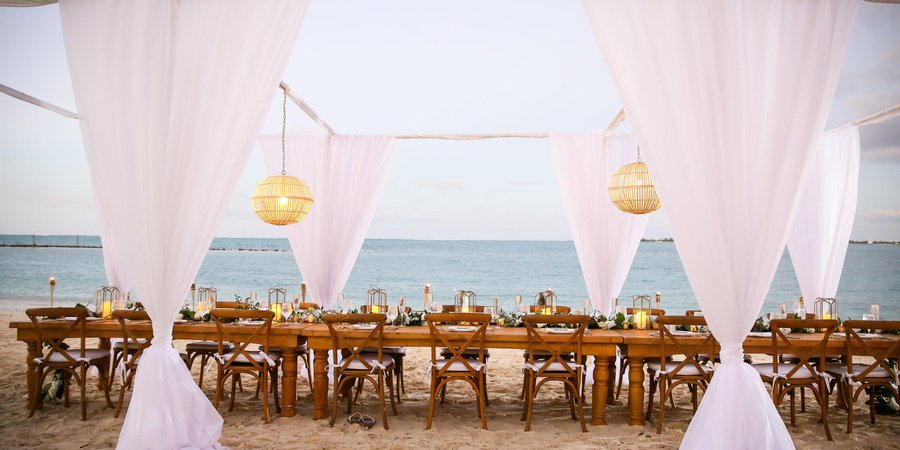
Source: Grand Hyatt Baha Mar
One of the key advantages of working with a local wedding planner is their familiarity with recommended vendors. When it comes to essential services like photography, catering, and decor, having a local expert's insights can make a world of difference. They can guide you toward reputable professionals who understand the unique nuances of hosting weddings in the Bahamas, ensuring that your big day is captured beautifully, your guests are delighted with delectable cuisine, and your venue is adorned with stunning decor that complements the tropical surroundings.
Planning a wedding in the Bahamas, especially from afar, can be made much more manageable by hiring local wedding planners and trusted vendors who are familiar with the region. Here's how to find them:
1. Wedding Planners
- Online Research: Start by researching wedding planners in the Bahamas online. Many have websites, portfolios, and client reviews that can help you gauge their experience and style.
- Social Media: Check social media platforms like Instagram and Facebook for wedding planners in the Bahamas. These platforms often showcase their work and allow you to see their style and approach.
- Ask for Recommendations: Reach out to recently married couples who had destination weddings in the Bahamas. They can provide valuable insights and recommendations based on their own experiences.
- Local Wedding Associations: The Bahamas may have local wedding planning associations or organizations. Contacting these groups can lead you to experienced professionals.
2. Benefits of Hiring a Local Wedding Planner
- Local Expertise: A local wedding planner in the Bahamas will have an in-depth knowledge of the area, including the best venues, vendors, and logistics. They can guide you in making informed decisions.
- Vendor Network: Local planners often have a network of trusted vendors they've worked with before, which can simplify the vendor selection process.
- Cultural Understanding: They can help you navigate local customs, traditions, and legal requirements, ensuring a smooth planning process and a seamless wedding day.
- On-Site Coordination: Having a local planner on-site can provide peace of mind on your wedding day, as they can handle any last-minute issues or adjustments.
When considering vendors, review their portfolios, read client reviews, and have discussions to ensure they align with your vision and budget. Additionally, seek recommendations from your chosen wedding planner, as they often have preferred vendors they trust and have worked with successfully in the past. Collaborating with experienced local professionals can make your Bahamas wedding planning journey both enjoyable and stress-free.
Invitations and Guest Logistics for Your Destination Wedding in the Bahamas
Sending out invitations and managing guest logistics for your destination wedding in the Bahamas requires careful planning and attention to detail. Here's a guide on sending invitations that can ensure a smooth experience for you and your guests:
1. When to Send Invitations
- Send Save-the-Dates Early: For a destination wedding, it's advisable to send save-the-date cards at least 6 to 8 months in advance. This allows guests to plan and make necessary travel arrangements.
- Formal Invitations: Send formal wedding invitations about 2 to 3 months before the wedding date. This extended timeline allows your guests ample to plan their travel, take time off work if necessary, and make any necessary preparations.
2. Information to Include for a Destination Wedding
- Date and Location: Clearly state the wedding date and location, including the name of the venue or resort in the Bahamas.
- Travel Information: Provide details on the nearest airport to the wedding location, as well as any recommended airlines or travel agencies that can help guests book flights.
- Accommodation Options: Include a list of recommended accommodations with varying price points. Mention any special rates or group booking details if applicable.
- Itinerary: Share a detailed itinerary of wedding events, such as welcome parties, rehearsal dinners, and post-wedding brunches.
- RSVP Information: Specify the RSVP deadline and how guests should respond. Provide both an email address and phone number for RSVPs.
- Travel Tips: Offer tips on travel essentials, packing suggestions, and any travel documents required, such as passports or visas.
- Registry Details: If you have a wedding registry, include information on where guests can find it.
- Local Contact Information: Share contact details for your wedding planner or a local point of contact who can assist guests with questions or concerns.
3. Arranging Group Travel and Accommodations
- Group Rates: Work with airlines and hotels to secure group rates or room blocks for your guests. This can often lead to cost savings.
- Travel Agent Assistance: Consider enlisting the help of a travel agent who specializes in destination weddings. They can assist with booking flights, accommodations, and transportation for your guests.
- Provide Booking Information: Communicate the booking process for accommodations and flights, including any booking codes or links for group reservations.
- Transportation: Arrange transportation options for guests from the airport to their accommodations and wedding events. This could include shuttle services or car rentals.
- Welcome Bags: Create welcome bags for your guests, filled with essentials like maps, local information, and small gifts. These can be distributed upon arrival to make guests feel welcomed and informed.
- Guest Liaison: Designate a point person or have your wedding planner serve as a guest liaison to assist with any questions or concerns leading.
The Wedding Day Itinerary
It's crucial to share the finalized wedding day itinerary with your wedding planner, vendors, and key members of the bridal party in advance to ensure that everyone is on the same page as unexpected delays or weather changes can occur. Having a well-structured itinerary, along with contingency plans, will help your wedding day run smoothly and create lasting memories for you and your guests. Here's what you should consider when creating your wedding day schedule:
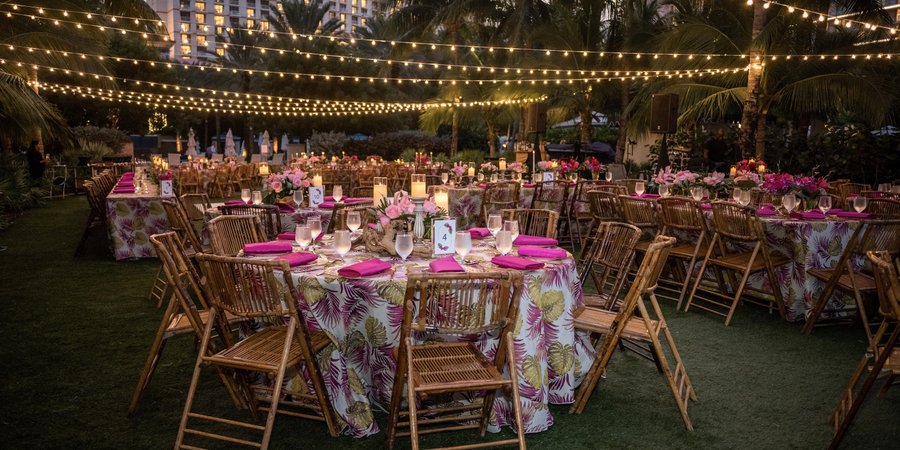
Source: Grand Hyatt Baha Mar
1. Wedding Ceremony
- Start Time: Begin by setting the start time for your wedding ceremony. Consider factors like the weather, lighting, and the time needed for preparations.
- Location: Specify the ceremony venue, whether it's a beachfront setting, a historic site, or another location in the Bahamas.
- Ceremony Details: Outline the ceremony order, including the processional, vows, ring exchange, readings, and any cultural or personal rituals.
- Officiant: Confirm the officiant's presence and their role in the ceremony.
- Music: Coordinate the music selection and any live musicians or a playlist for the ceremony.
- Photography and Videography: Schedule specific times for capturing key moments during the ceremony, such as the entrance, vows, and ring exchange.
- Transportation: If necessary, arrange transportation for the bridal party and guests to and from the ceremony venue.
2. Reception Night
- Start Time: Determine the start time for the reception, considering the duration of the ceremony and the time needed for guests to transition to the reception venue.
- Location: Indicate the reception venue, whether it's at a resort, hotel, historic site, or any other chosen location.
- Reception Details: Create a timeline for the reception, including the entrance, first dance, speeches, dinner service, and cake cutting.
- Food and Beverage: Coordinate with the caterer to ensure that the menu and beverages are served according to the schedule.
- Entertainment: Plan for entertainment, such as live music, a DJ, or other performances during the reception.
- Dancing: Schedule time for dancing and inform guests when the dance floor will be open.
- Toasts: Coordinate with speakers for toasts and speeches, specifying when and where they will take place.
- Photography and Videography: Ensure that your photographers and videographers are present to capture key moments during the reception.
- Guest Departure: Indicate the end time for the reception and any transportation arrangements for guests who need to return to their accommodations.
3. Additional Activities
- Pre-Wedding Activities: If you plan to host pre-wedding activities like welcome parties, rehearsal dinners, or boat trips, include these events in your itinerary with start and end times.
- Local Tours: If you want to offer your guests the opportunity to explore the Bahamas through local tours or activities, provide details about timing, meeting points, and any costs involved.
- Free Time: Allow guests some free time to relax, explore, or enjoy the amenities of the destination.
- Logistics: Ensure that transportation and any necessary reservations are arranged for additional activities.
By carefully planning your wedding day itinerary, you can strike a balance between the beauty of your surroundings and the celebration of your love, creating unforgettable memories for both you and your guests during your destination wedding in the Bahamas.
Packing Tips for your Destination Wedding in the Bahamas
Packing efficiently for your wedding will ensure that you have everything you need while keeping your luggage manageable. The crucial thing is you should know what to bring, what to leave behind, and customs regulations so that you don’t have to face issues later at the airport and the wedding:
1. What to Bring
- Wedding Attire:
- Your wedding dress or suit
- Bridal accessories, such as shoes, veil, and jewelry
- Groom's attire, including a tuxedo or suit
- Extra outfits for pre-wedding events like welcome parties and rehearsal dinners
- Travel Documents:
- Passports for you and your partner
- Copies of your birth certificates
- Marriage license and any required documents
- Travel insurance information
- Flight itineraries and hotel reservations
- Essential Clothing:
- Beach attire for casual days.
- Swimwear for beach and pool time.
- Light, breathable clothing suitable for the tropical climate.
- Comfortable shoes for walking and exploring.
- Toiletries and Medications:
- Personal toiletries, including sunscreen, insect repellent, and toiletries like toothpaste and shampoo.
- Any necessary prescription medications with proper documentation.
- First aid kit with basics like bandages, pain relievers, and motion sickness medication for boat trips.
- Wedding Necessities:
- Wedding rings.
- Wedding favors and decorations (if not provided by your planner).
- Any special items or heirlooms for the ceremony.
- Marriage vows or speeches (if written in advance).
- Electronics:
- Cameras and chargers for capturing memories.
- Adapters and converters if needed for your electronics.
- Travel Accessories:
- Luggage, including checked and carry-on bags.
- Travel locks for securing your luggage.
- Travel-sized laundry bag to pack used clothes.
- Currency and Payments:
- Sufficient cash in the local currency (Bahamian dollar) for small expenses.
- Credit or debit cards for larger purchases.
2. What to Leave Behind
- Unnecessary Items:
- Heavy winter clothing, as the Bahamas has a tropical climate.
- Excessive toiletries, as you can purchase these locally.
- Unneeded electronics or valuables.
3. Customs Regulations
When traveling to the Bahamas, it's essential to be aware of customs regulations:
- Duty-Free Allowances: Familiarize yourself with the duty-free allowances for items like alcohol, tobacco, and luxury goods. You can typically bring in a limited quantity without incurring additional taxes.
- Gifts and Wedding Items: If you're bringing wedding gifts or decorations, keep the receipts to prove their value and that they are not for resale.
- Restricted and Prohibited Items: Ensure that you do not bring prohibited items, such as illegal drugs or items made from endangered species.
- Duty Declarations: Be truthful on your customs declaration forms, and declare any items that exceed duty-free allowances.
By following these packing tips and considering customs regulations, you can ensure that your destination wedding in the Bahamas goes off without a hitch, allowing you to focus on celebrating your special day in paradise.
Conclusion
A wedding in the Bahamas is a dream come true for couples seeking a picturesque and romantic destination. The unparalleled natural beauty makes it a sought-after destination for weddings. A wedding in the Bahamas is not merely an event; it's a captivating journey filled with love, adventure, and the beauty of nature. Couples who embark on this romantic voyage can look forward to celebrating their love in one of the world's most enchanting locations, creating cherished memories that will last a lifetime. Whether your vision is a quiet, intimate affair or a grand celebration, the Bahamas provides the perfect canvas on which to paint the picture of your dream wedding.
Edited & Photo Sourced By: Neha Garg Ahuja




